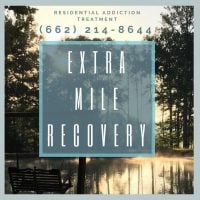Lindys Place
Drug Rehab Center in West Point, Mississippi
Lindys Place is a comprehensive addiction treatment facility that offers evidence-based treatment options and personalized care to address both the physical and psychological aspects of addiction, with a holistic approach aimed at encouraging lasting recovery.
About Lindys Place in Mississippi
Lindys Place in West Point, Mississippi is a comprehensive addiction treatment facility dedicated to providing care for individuals suffering from addiction and substance abuse. Their facility offers a safe and supportive environment for individuals to focus on their recovery and become healthy, productive members of society. The personalized care they provide covers mental health, physical health, and the spiritual well-being of their clients.
At Lindys Place, they offer a range of evidence-based treatment options to address both the physical and psychological aspects of addiction. These include cognitive behavioral therapy, Dialectical Behavioral Therapy, individualized counseling, medication-assisted treatment, and family/peer support. Their holistic approach to addiction encourages clients to develop the skills, confidence, and self-awareness needed to maintain lasting recovery.
Lindys Place is an accredited, state-licensed addiction treatment facility, meeting the highest standards of quality in its care. They have also received prestigious awards from the National Association of Addiction Treatment Providers and the Mississippi Association of Addiction Professionals. They offer an in-house recovery coach to help their clients create a personalized, step-by-step plan for lasting success in recovery, as well as a 24/7 helpline for providing support and resources for individuals in recovery.
Genders
Ages
Modality
Additional
Conditions and Issues Treated
Levels of Care Offered
This center offers a variety of custom treatment tailored to individual recovery. Currently available are Aftercare Support, Outpatient, with additional therapies available as listed below.
Outpatient treatment is considered the lower intensity level of addiction treatment. It’s ideal for early phase addiction or lower intensity addictions. It may include weekly sessions instead of daily. It may include weekly sessions instead of daily. Peer group support, 12-step programs, and individual counseling may still be involved but at a lesser frequency than an intensive outpatient program. It is a good choice for someone who doesn’t need to go through a medically supervised detox and who has a supportive home environment. It requires motivation and dedication to commit to the program without constant monitoring.
Aftercare support should take place after outpatient treatment has ended. There are a few different types of aftercare support that patients can seek. These include 12 Step, Self-help groups (AA, NA), Therapeutic communities, Long-term, structured sober living arrangements, and Halfway houses (residential treatment centers).
Therapies & Programs
Individual therapy involves one-on-one sessions between the patient and therapist. It provides patients with a safe environment to openly discuss personal and sensitive issues with the therapist. They find the therapist as someone they can trust. Individual therapy aims to identify the core issues that would have led the patient to substance abuse and address them effectively. The therapist can develop patient-specific customized solutions through individual therapy, which aids speedier recovery.
Couples therapy works with clients and significant others in a professional capacity to improve relationship dynamics. This can be helpful for addicts who are trying to marry the idea of recovery into their work, family, social lives – any aspect that has to do with relationships.
Through counseling sessions, addicts will have an opportunity to talk about their addiction with professional partners. These partners can offer feedback and advice on how to get sober while keeping healthy relationships intact. A good couples therapist will help addicts understand their part in an unhealthy relationship dynamic or find ways to deal with anger or resentment from significant others outside of the home.
Family therapy is a group problem-solving that aims to improve communication and relationships between the addict, their family, and sometimes friends. The main goal of family therapy for drug addiction is to create an environment where communication can occur without judgment, hostility, or blame. The therapist is with the family as they learn to communicate differently, especially with the addict when s/he is using. The family can learn to reduce their enabling behavior or rally together and support each other during tough times.
An addict’s family can play a vital part in helping them to avoid relapse because they can spot the warning signs and help them get back on track before it becomes too much of a problem. Family therapy is one of the most effective ways to help addicts stay on the path to long-term sobriety. When a drug addict decides that they want to try and get sober, it takes the support of every person they love to succeed. It can be incredibly difficult for loved ones to watch an addict go through the pain and suffering of withdrawal, but by being there with them and supporting them, they can help to make sure that the addiction never returns.
Groups typically involve meetings with other recovering addicts who can relate to one another’s experiences. They might meet in person or online and typically focus on the process of staying sober rather than overcoming a specific addiction.
In these groups managed by Lindys Place, addicts can build a sense of community and develop strong emotional connections with others who understand what they are going through. These beneficial relationships can help addicts overcome their cravings and prevent relapse at any point during the recovery process.
There is hope for people who are addicted to drugs and alcohol. Cognitive Behavioral Therapy (CBT) is the solution. CBT focuses on the underlying thoughts and behaviors that caused the addiction problem in the first place and may cause a relapse. This type of psychotherapy addresses negative feelings common in substance abuse disorders. It helps to change them by restructuring thought patterns. It’s about removing negative thoughts and providing long-term benefits while promoting self-awareness, self-control, and healthy ways to respond to negative thoughts. These sessions can be done by themselves or as part of combination therapy.
Patient Experience
Experiential Therapy at Lindys Place
Experiential Therapy teaches people how to think differently about their lives and change their emotions by changing their behavior. This type of treatment is accomplished with various activities that may involve acting, props, arts and crafts, animal care, or other tools that may be effective.
This therapy aims for patients to release suppressed thoughts that cause bad feelings and drug addiction. Role-playing, arts and crafts, music, animal care, rock climbing, etc., are some of the activities used in this therapy. Gradually an individual will feel calmer and more loving which will change their perception positively. In addition to treating drug addiction, experiential therapy is beneficial for different behavioral and eating disorders.
Payment Options Accepted
For specific insurance or payment methods please contact us.
Additional Details
Specifics, location, and helpful extra information.
West Point, Mississippi 39773 Phone Number(662) 492-4320 Meta DetailsUpdated November 25, 2023
Staff Verified
Lindys Place Patient Reviews
There are no reviews yet. Be the first one to write one.
West Point, Mississippi Addiction Information
Mississippi has one of the highest rates of drug and alcohol abuse-related deaths. Approximately 350,000 residents use illicit drugs every year while another 108,000 abuse alcohol. In one year, doctors in Mississippi prescribed 76.8 opioid prescriptions for every 100 persons. This compares to the national rate of 51.4 prescriptions.
The drug addiction problem in West Point, MS is unfortunately quite severe. 8.4 percent of people in West Point, MS are addicted to drugs or alcohol. In 2016, there were 221 drug-related overdose deaths in Mississippi. West Point accounted for 5 of those deaths. There are various types of drug treatment programs available in West Point, Mississippi. Outpatient and inpatient rehab programs offer different options for treatment.
Treatment in Nearby Cities
- Tougaloo, MS (120.8 mi.)
- Ruleville, MS (109.7 mi.)
- Brandon, MS (120.7 mi.)
- Port Gibson, MS (176.9 mi.)
- Macon, MS (35.0 mi.)
Centers near Lindys Place
The facility name, logo and brand are the property and registered trademarks of Lindys Place, and are being used for identification and informational purposes only. Use of these names, logos and brands shall not imply endorsement. RehabNow.org is not affiliated with or sponsored by Lindys Place.



